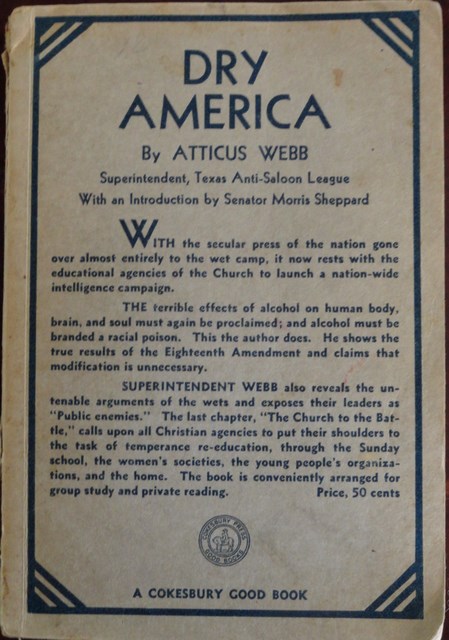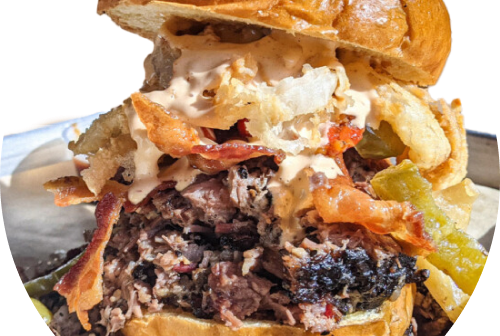 Inspired by the first two episodes of Ken Burn’s Prohibition on KERA, Amy Severson and I did a little digging into some of the details of what was going on in Dallas before, during, and after prohibition. The third, and final, episode is tonight at 9PM. It’s been a fascinating documentary. Today, we scratch the surface of prohibition in Dallas.
Inspired by the first two episodes of Ken Burn’s Prohibition on KERA, Amy Severson and I did a little digging into some of the details of what was going on in Dallas before, during, and after prohibition. The third, and final, episode is tonight at 9PM. It’s been a fascinating documentary. Today, we scratch the surface of prohibition in Dallas.
Dripping Dry Dallas. That was the name earned by our city after the repeal of prohibition in 1933.
If you’ve watched the first two episodes of Ken Burn’s historical presentation, Prohibition, our country’s brief love affair with forced sobriety, you already know the national temperance movement came about as a reaction to the despair brought on families affected by alcoholism.
Jump.
Prior to the national ban on the production and sale of alcoholic beverages, Dallas already had a strong, well-organized faction fighting to keep Dallas dry. Texas, like Kansas and Maine, joined the movement to ban alcohol way before the ratification of the Eighteenth Amendment to the U.S. Constitution and the passing of Volstead Act passed in 1919. In 1897, The Texas Anti-Saloon League, was headquartered in Dallas. Even though it was a provisional committee, it didn’t stop the league from organizing anti-booze rallies until they were officially charted by the national office in 1907. The Texas Anti-Saloon League then paired with the Dallas Central chapter of the Women’s Christian Temperance Union, the Dallas Pastors’ Association, and reached out to African American citizens for their vote. The battle cry– “The Saloon Must Go”—was plastered on banners and posters all over the city.
Cry as they might, there were over 300 saloons in Dallas, approximately 1 for every 100 people. In a Dallas Morning News story printed on September 12, 1926, Historian William S. Adair quoted local resident George Cretien’s observations of the city: “Dallas was as quiet, law-abiding a community, as could be desired, until outsiders began to pour in in anticipation of the railroads, which were heading this way. Then, it began to fill up with saloons, gamblers and dance halls, wild men and wilder women.”
Saloons were plentiful and local alcohol manufacturers controlled the distribution, sometimes using nefarious techniques to specialize their particular drink over others. In order to gain competitive advantage, saloons would “enhance” barrels of whiskey with more potent products (tobacco, laudanum) to ensure a “regular” stream of business.
While the success of the Texas Anti-Saloon League endeavors varied county-by-county, there is little doubt about their strength in Dallas. They called for a local option election and Dallas County was completely dry in 1917, two years before the national ban. Even though Dallas Mayor Joe E. Lawther opposed the measure, the “Drys” brilliantly tied the issue to World War I, urging its passage as a moral stance on the war. The vote passed and Dallas remained dry until the passage of the 21st amendment in 1933. Locals rejoiced and thought it would be easier to get a drink in Dallas. But the new Mayor, George W. Sergeant, Sr., was also deacon of the Presbyterian Church and an Anti-Saloon League board member. So the behind-the-scenes drinking continued.
The final episode of Prohibition is on KERA, channel 13, tonight at 9PM. You can catch re-runs of the first two starting at 7PM. Or you can watch them online.
“What came next?” You might wonder? Well watch Part III on KERA tonight and drink it all in.






